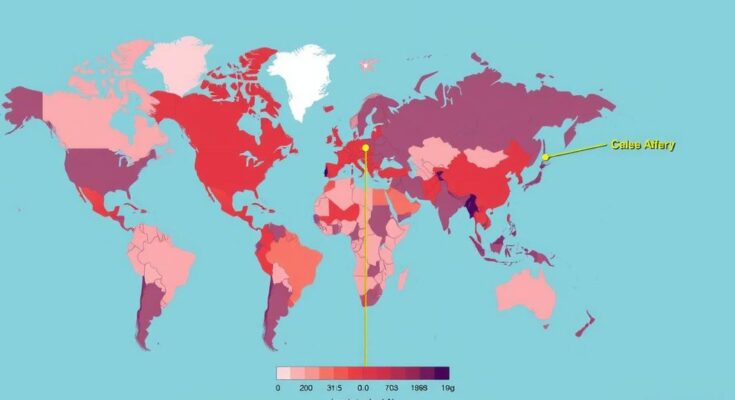The year 2024 saw a dramatic wave of voter discontent across 70 countries, resulting in the rejection of incumbents due to dissatisfaction with governance amidst economic disruption and instability. Notable defeats were seen for established parties globally, while the right-wing populist movements gained traction. Political instability, allegations of election interference, and social media’s rising influence shaped this turbulent election year, setting the stage for continued challenges into 2025.
As 2024 unfolded, global voters decisively expressed dissatisfaction with their incumbents, reflecting a broader sentiment of frustration towards government performance amid economic and social hardships. Roughly 70 countries, representing half of the world’s population, participated in elections, resulting in significant upsets across various political landscapes. High inflation exacerbated by geopolitical tensions, including Russia’s invasion of Ukraine, coupled with enduring challenges from the pandemic, compelled voters to seek alternatives, frequently favoring outsiders and radical ideologies over traditional politicians.
In numerous nations, historical parties faced unprecedented defeats. In South Africa, the African National Congress (ANC), which has long dominated since apartheid ended, suffered substantial losses and entered into a coalition with opposition factions. Similarly, the Bharatiya Janata Party (BJP) of India lost its majority, prompting a coalition government, and in the UK, the Labour Party triumphed over the Conservatives, a party that had been in power for fourteen years. Voters across countries such as Senegal, Ghana, and Nigeria echoed this sentiment, leading to the rise of new political forces.
The rise of right-wing populism was a notable trend, affecting even long-established democracies. In the EU, conservative groups gained ground, and allegations of election interference emerged, particularly from Russia and other state actors. This political turbulence accompanied an increasing reliance on social media as a campaign tool, leading to instances of misinformation.
Political instability marked the year worldwide, exemplified by Trump’s unexpected resurgence to power in the U.S., prompting concerns regarding the ramifications of his presidency. Additionally, nations like Mozambique faced violent protests amidst allegations of election rigging, while South Korea’s government grappled with internal crises, including a controversial declaration of martial law that was swiftly reversed by Parliament. As the year draws to a close, elections in countries such as Canada and Germany foreshadow further political upheaval in 2025, where dissatisfaction with democracy’s functioning amplifies, highlighting a divide between public aspirations for democratic governance and actual experiences.
The year 2024 has been characterized as a critical juncture for democracy worldwide, with elections serving as battlegrounds for voter discontent. Various factors, including ongoing socio-economic challenges stemming from the COVID-19 pandemic and rising geopolitical tensions, have heightened public dissatisfaction with established political institutions. This discontent has led to significant electoral shifts across democracies, prompting voters to largely reject incumbent leadership in favor of new, often unconventional candidates. The broader implications of these electoral outcomes suggest a search for governance models that can address the mounting crises facing numerous nations.
In summary, 2024 illuminated a year of significant upheaval in global political landscapes, wherein widespread voter dissatisfaction culminated in the rejection of many incumbents across over 70 countries. The rise of far-right ideologies coincided with an observable decline in traditional party dominance, revealing a fracture in democratic principles shaped by public performance expectations. The continuing challenges ahead, coupled with rising authoritarian sentiments, indicate that the quest for effective democratic governance remains fraught with obstacles.
Original Source: www.news4jax.com




